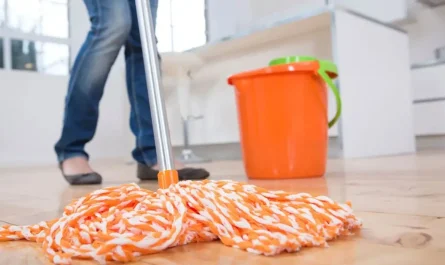Buying and Selling at Once? Don t Make These 8 Big Mistakes
Look, I understand that you’re managing a lot of things at once. You’re trying to sell your existing house while searching for your new ideal one. It’s too much to handle. However, waiting too long to prepare their house for sale is a mistake I see far too frequently.
The truth is that even minor touch-ups or fixes can have a significant impact. Small issues like a damaged wall, a loose tile, or a somewhat worn-out bathroom can deter purchasers or reduce the amount you are willing to give. By starting early, you may prevent that last-minute worry when you’re already balancing paperwork and house tours and are hurrying to correct everything.
The greatest sellers get ahead of the game, according to agents I’ve spoken to on numerous occasions. Because he was too busy making offers on other properties, one of my clients kept putting off cleaning his house. His house sat longer than it should have, and the market was slowing down by the time he eventually got around to it. Not enjoyable.
My recommendation is to begin your preparation list as soon as you make the decision to sell. Don’t delay. Repair the deck, repair the grout, and paint that scratched wall. It must appear well-maintained, but it need not be flawless. Additionally, inquire early on with your agent about the ideal timing for your market; occasionally, a few weeks can make a big difference.
Not only is it smart to succeed here, but it also brings peace of mind. Later, you’ll thank yourself.
Always Have a Backup Plan Things Don t Always Go as Planned
Working with homebuyers and sellers has taught me that real estate rarely goes as planned, especially when you’re buying and selling at the same time. The likelihood that something may confuse you increases with the number of moving parts.
Experts in real estate make it quite evident that you cannot count on your sale and acquisition to close at the same time. Perhaps your loan approval is delayed, or your buyer abruptly withdraws. Without a contingency plan, you may find yourself homeless or frantically looking for temporary accommodation.
Thus, my recommendation is to put away additional funds in addition to your down payment. Consider it your safety net for unforeseen costs, such as a short-term rental or hotel stay. Additionally, discuss deadlines and contingency options with your agency. Knowing that you have a backup plan will boost your confidence significantly.
Get Pre-Approved Before You Dream Big
The truth is that without a reliable pre-approval, you’re merely speculating about how much you can afford, even though you may be thrilled and want to move into a larger room or update your house. And heartbreak may result from that.
Getting pre-approved is the reality check you need, I always tell folks. It prevents you from falling in love with unaffordable residences. Many buyers overestimate their borrowing power, believing that a large down payment or high income will immediately get them approved for a larger loan, according to seasoned agent Jessica Althoff. However, that isn’t always true.
You are fully aware of your budget after you are pre-approved. You may narrow down your search, negotiate more effectively, and save frustration and time.
I’ve discussed doable tactics for buying a house with bad credit that might help you get more ready before applying if you’re concerned that your credit will hinder loan approval.
Don t Count on the Market to Stay Perfect Build a Cushion
One thing that often surprises me is that many expect to sell their present house for the best price and use the money to buy something else. Not all of the time does the market cooperate.
For his next home, a client of one of the agents I know required $1.3 million from his sale. He wasn’t likely to get that price, though, as the market cooled. He was suddenly under pressure and frantically trying to find a way to close the distance.
Planning to sell for less than your optimum price is always a good idea. In this manner, you’ll be ready in case the market declines or offers fall short of your expectations. Create a safety net so you won’t have to rush to make up the difference.
Be Ready to Compromise Everyone s Stressed, So Keep It Real
Simultaneous buying and selling results in more parties involved and increased stress levels overall. The importance of flexibility cannot be overstated.
Perhaps the sellers of your next house aren’t prepared to address every little issue, or the buyers of your house require an additional week on escrow. You will only become frustrated if you expect perfection from everyone.
A small amount of compromise goes a long way, as Jessica Althoff aptly puts it. Others are more likely to follow suit if you’re ready to make little adjustments or give up some time. It keeps everything going smoothly.
Don’t forget to ask these 15 smart house-hunting questions every buyer should ask when you’re ready to start taking your search seriously so you can prevent surprises and make informed decisions.
Use One Agent for Both Buying and Selling, If You Can
Working with two distinct agents—one for purchasing and one for selling—can cause needless problems. This is a tip from the trenches. If at all possible, I advise using the same agent on both sides.
An experienced real estate agent named Michael Pacheco says that when one individual manages both transactions, they have more control over communication and timing. This increases the likelihood of both deals finishing amicably and reduces surprises.
Get them to collaborate closely or work for the same brokerage if you’re relocating out of state or can’t locate an agent who handles both. It all comes down to simplifying the procedure.
Many people find it helpful to join specific WhatsApp discussion groups where seasoned buyers and sellers share their experiences and advise in order to get real-time recommendations, rapid replies, and updates on home buying and selling.
Avoid Closing on a Friday Timing Matters More Than You Think
I would be wealthy if I had a dime for each time someone disregarded this advise and later regretted it. It seems convenient to close on Friday, doesn’t it? The worst part is that banks frequently take longer to process wire transfers on weekends.
I admire real estate agent Karen Choate, and she says you should never close on a Friday. You can be left without money when you need it most if the money doesn’t clear until Monday or later.
Aim for a close earlier in the week instead. Before you proceed to the next phase, you may rest easy knowing that everything has been resolved and that funds have been deposited into your account.
Schedule Your Closings in the Morning Afternoon Isn t Your Friend Here
In the same vein, I usually advise setting up your closings early in the day, particularly if you’re selling your existing house.
Banks usually stop processing wire transfers by mid-afternoon (often around 3 p.m. local time). If your closing happens too late, the transfer might not go through until the next business day. That can delay your ability to use the funds when you really need them.
By closing in the morning, you give yourself a cushion in case something goes sideways. Trust me, those extra hours make a difference.
Once your home goes under contract, there are critical steps you must follow to keep the process on track and avoid surprises check out these10 things you must do after your home goes under contractto stay ahead.
Keep Your Sanity Practical Tips for Staying Organized and Stress-Free
Buying and selling a home at the same time isn t just a financial puzzle it s an emotional rollercoaster. If you don t take care of your mental game, the process will wear you down.
Here s what I tell everyone: get organized early. Use checklists, set reminders, and keep a dedicated folder (digital or physical) for all documents.
Lean on your support system, and don t hesitate to ask for help when you feel overwhelmed. Also, try some simple stress-busters walks, meditation, or even talking to someone who s been through it.
Remember, you re juggling a lot. Taking care of your mental health isn t a luxury, it s a necessity.
Final Thoughts: Navigate Your Move with Confidence and Care
Buying and selling your home at the same time is no small feat. But if you avoid these common mistakes, you ll save yourself a ton of stress, time, and money. Remember, preparation, backup plans, and flexibility are your best friends here.
Lean on trusted experts, stay organized, and keep your expectations realistic. You ve got this one step at a time.
What s the biggest challenge you ve faced (or expect to face) when juggling buying and selling? I d love to hear your story.
Looking to dive deeper? Check out our comprehensive guides and expert advice on buying and selling homes to make smarter decisions every step of the way on our websiteBuild Like New.
Disclaimer:This article is for informational purposes only and doesn t replace professional real estate or financial advice. Market conditions and regulations vary by location and over time. Always consult a qualified expert before making decisions about buying or selling property.
Table of Contents
-
Always Have a Backup Plan Things Don t Always Go as Planned
-
Get Pre-Approved Before You Dream Big
-
Don t Count on the Market to Stay Perfect Build a Cushion
-
Be Ready to Compromise Everyone s Stressed, So Keep It Real
-
Use One Agent for Both Buying and Selling, If You Can
-
Avoid Closing on a Friday Timing Matters More Than You Think
-
Schedule Your Closings in the Morning Afternoon Isn t Your Friend Here
-
Keep Your Sanity Practical Tips for Staying Organized and Stress-Free
-
Final Thoughts: Navigate Your Move with Confidence and Care




